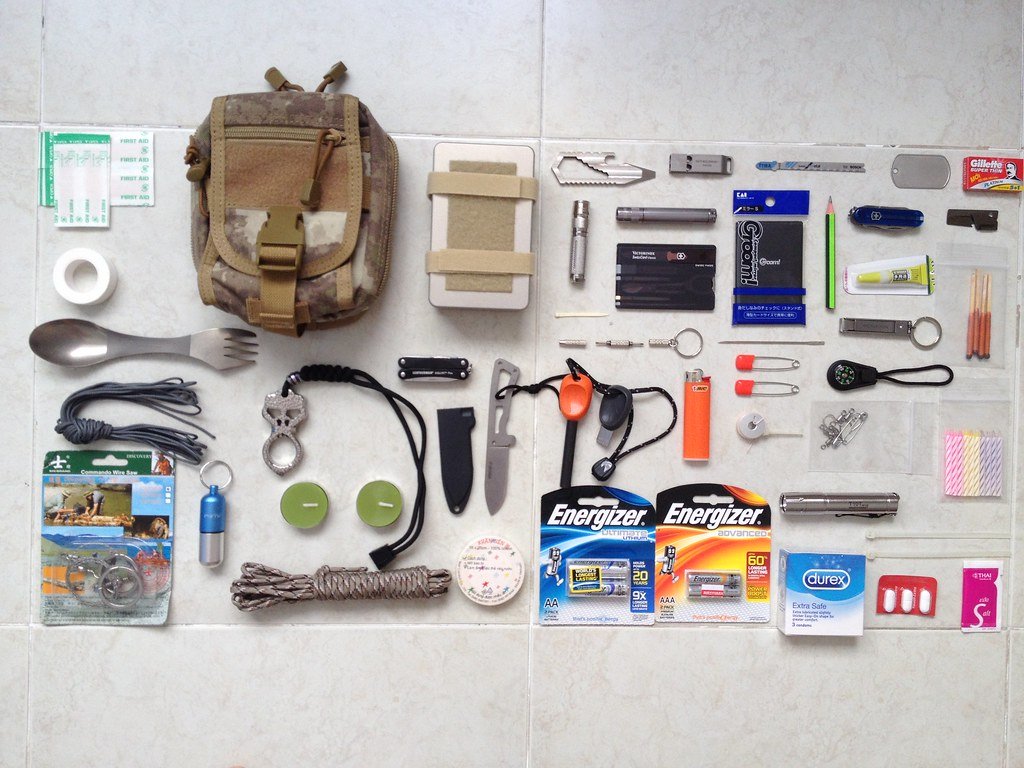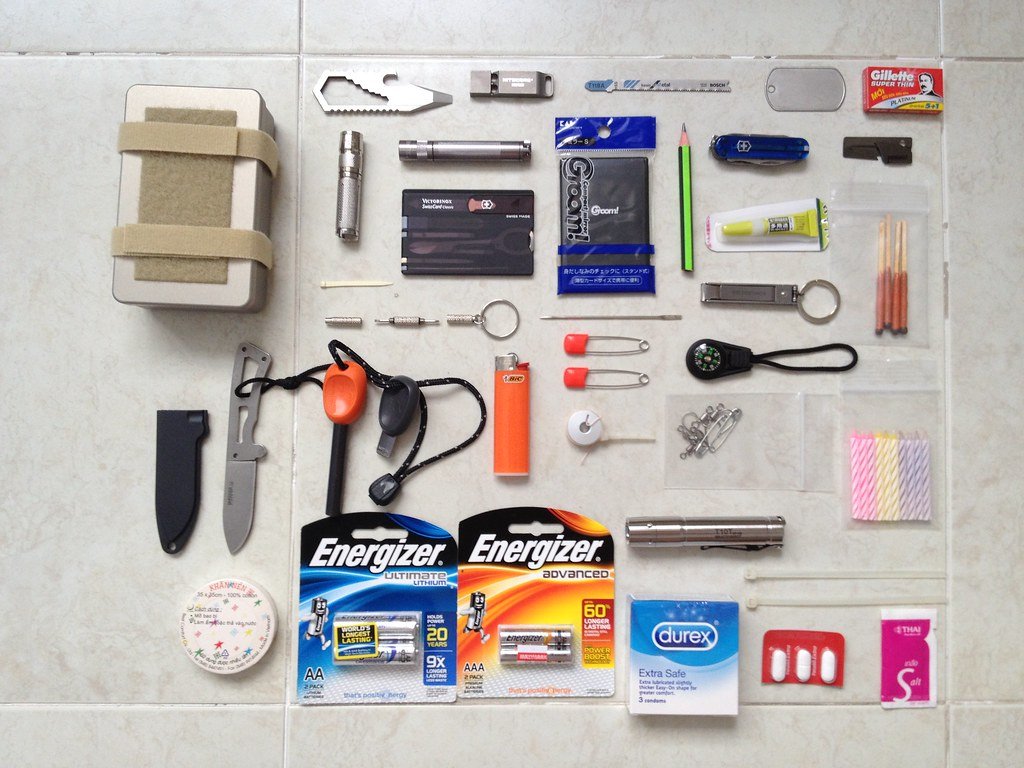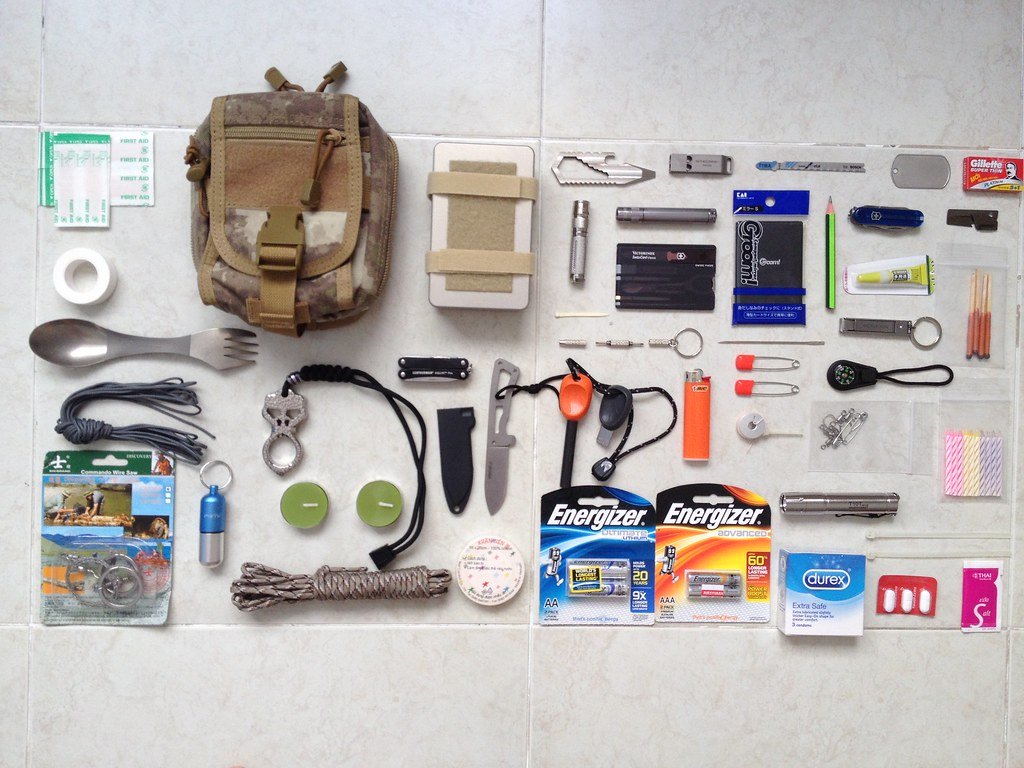Now Reading: The Importance of Hygiene in Urban Survival
-
01
The Importance of Hygiene in Urban Survival

The Importance of Hygiene in Urban Survival
Cities are sprawling organisms, vibrant and teeming with life at every corner. They become the beating heart of our civilization, offering opportunities, culture, and a bustling atmosphere that is difficult to resist. But within these concrete jungles lies an unseen jungle of bacteria, viruses, and germs, waiting to strike at the immune system of the unsuspecting city dweller. In the realm of urban survival, where the usual comforts of modern life may be stripped away, the importance of hygiene becomes an intrinsic virtue, a beacon of defense against the lurking threats. From pandemic outbreaks to basic cleanliness practices, understanding the significance of hygiene in urban survival is not only a matter of personal well-being but can also determine the resilience of entire communities. As we delve into the depths of this intricate topic, we unearth the vital practices, principles, and mindset required to navigate the urban wilderness while keeping the chaos at bay.
Table of Contents
- The Power of Cleanliness in Urban Survival
- The Role of Hygiene in Maintaining Health during Crisis
- Hygiene Practices for Urban Survival: Key Strategies to Stay Safe
- Maintaining Cleanliness in Urban Environments: Practical Tips and Recommendations
- The Link Between Hygiene and Urban Survival: A Closer Look at the Risks and Solutions
- Q&A
- Key Takeaways

The Power of Cleanliness in Urban Survival
When it comes to urban survival, cleanliness is often overlooked but holds tremendous power. Maintaining a clean environment not only promotes physical well-being but also contributes to mental and emotional health. A tidy and organized living space can make a world of difference in navigating the challenges of urban life.
Firstly, cleanliness plays a crucial role in preventing the spread of diseases. Regularly washing hands, disinfecting surfaces, and maintaining personal hygiene are essential habits to practice. By keeping ourselves clean, we reduce the risk of contracting illnesses, which can be especially paramount in densely populated urban areas where germs can easily spread.
Furthermore, cleanliness fosters productivity and a sense of calm. When our living spaces are clutter-free and organized, it becomes easier to focus and accomplish tasks. A clean environment has a positive impact on mental clarity and reduces stress levels. Studies have shown that individuals who maintain tidiness in their surroundings are more likely to experience improved concentration, creativity, and overall well-being.
- Clears the mind
- Reduces stress
- Boosts productivity
- Enhances concentration
In urban survival scenarios, embracing cleanliness goes beyond personal health and well-being. Keeping public spaces clean and participating in community initiatives can have a profound impact on the overall urban environment. By picking up litter, recycling, and practicing responsible waste management, individuals can contribute to the sustainability and livability of their city.
Overall, cleanliness should not be underestimated in the realm of urban survival. Embracing cleanliness habits not only ensures physical health and safety but also enhances mental clarity and community well-being. It is a powerful tool that empowers individuals to thrive amidst the challenges of urban living.

The Role of Hygiene in Maintaining Health during Crisis
During times of crisis, maintaining good hygiene practices is essential for ensuring the well-being of individuals and communities. Personal hygiene plays a crucial role in preventing the spread of diseases and infections. By practicing proper hygiene, we can protect ourselves and others, contributing to the overall health and stability of our surroundings.
Handwashing: Regularly washing hands with soap and water for at least 20 seconds is one of the simplest yet most effective ways to prevent the transmission of germs. This basic habit eradicates harmful microorganisms from our hands, reducing the risk of infection. Hand sanitizers containing at least 60% alcohol can also be used when soap and water are not readily available.
Cleaning and Disinfecting: Maintaining a clean and sanitized environment is crucial in crisis situations. Regularly clean frequently touched surfaces such as doorknobs, light switches, and cell phones. Use household disinfectants that are effective against a wide range of viruses and bacteria. Furthermore, it is important to follow proper processes when handling and disposing of waste, adhering to guidelines provided by local health authorities.
Social Distancing and Respiratory Hygiene: In crisis situations, it is important to practice social distancing to reduce the risk of infection. Respect personal space and keep a distance of at least 6 feet from others when possible. Additionally, practicing good respiratory hygiene by covering your mouth and nose with a tissue or your elbow when coughing or sneezing can help prevent the spread of respiratory droplets containing germs.

Hygiene Practices for Urban Survival: Key Strategies to Stay Safe
When it comes to urban survival, maintaining proper hygiene practices is crucial for staying safe and healthy. Here are some key strategies to help you navigate the challenges of urban living:
- Prioritize hand hygiene: Regularly washing your hands with soap and clean water is essential, particularly before eating or preparing food, after using the restroom, and after being in public spaces. If clean water is scarce, use hand sanitizer with at least 60% alcohol content.
- Keep your surroundings clean: Urban environments can be breeding grounds for germs. Make it a habit to regularly clean and disinfect frequently touched surfaces, such as doorknobs, light switches, and countertops. Remember to wear gloves, if available, and use disinfectant sprays or wipes.
- Practice respiratory hygiene: In crowded urban areas, it’s important to protect yourself and others from respiratory illnesses. Cover your mouth and nose with a tissue or your elbow when coughing or sneezing, and dispose of used tissues properly. If you’re in close proximity to others, wearing a mask can also help reduce the risk of infection.
- Sanitize and purify water: Access to clean drinking water may be limited in urban survival situations. Invest in water purification systems, water filters, or chemical treatments to ensure the water you consume is free from harmful bacteria and viruses.
- Maintain personal hygiene: Despite challenging circumstances, it’s crucial to prioritize personal hygiene. Regularly bathe or shower, brush your teeth, and change into clean clothes when needed. These simple practices can go a long way in preventing illnesses and maintaining overall well-being.
By implementing these hygiene strategies, you can enhance your safety and reduce the risk of contamination in urban survival scenarios.

Maintaining Cleanliness in Urban Environments: Practical Tips and Recommendations
Living in urban environments offers numerous advantages, but with the hustle and bustle of city life, cleanliness can often be overlooked. However, by following some practical tips and recommendations, we can contribute to maintaining a cleaner and more sustainable urban environment for everyone to enjoy.
To start, it’s important to remember that cleanliness begins with each one of us. Here are some practical tips:
- Dispose of waste responsibly: Properly dispose of garbage and recyclable materials in designated bins. Avoid littering and encourage others to do the same.
- Participate in community clean-up events: Join or organize community clean-up initiatives such as litter picking and park maintenance. These activities foster a sense of unity and keep our urban spaces tidy.
- Reduce, reuse, and recycle: Minimize waste by opting for reusable items and recycling whenever possible. Educate yourself on local recycling guidelines to ensure proper disposal.
Furthermore, it’s crucial to address the issue of cleanliness from a broader perspective:
- Advocate for clean public spaces: Support local efforts to improve public sanitation, such as the installation of more public trash cans or the introduction of effective waste management systems.
- Plant trees and beautify urban landscapes: Participate in tree-planting initiatives and encourage the implementation of green spaces. These not only enhance the visual appeal of the urban environment but also improve air quality.
- Educate and raise awareness: Spread the word about the importance of cleanliness through social media, community workshops, and educational campaigns. Encourage others to take pride in their surroundings.
By adopting these practical tips and recommendations, we can all play a vital role in maintaining cleanliness in our urban environments. Let’s work together for a cleaner, healthier, and more vibrant cityscape.
The Link Between Hygiene and Urban Survival: A Closer Look at the Risks and Solutions
As populations grow and cities become increasingly crowded, the link between hygiene and urban survival becomes more crucial than ever before. Neglecting proper hygiene practices can lead to a host of health risks, jeopardizing the well-being of individuals and the entire urban community. Here, we delve deeper into the risks associated with poor hygiene and explore innovative solutions to ensure a healthier urban environment.
The Risks:
- Spread of Diseases: Without adequate hygiene measures, infectious diseases can spread like wildfire in urban settings. High population densities, limited access to clean water and sanitation facilities, and poor waste management contribute to the rapid transmission of diseases such as cholera, typhoid, and hepatitis.
- Poor Mental and Emotional Health: The impact of poor hygiene extends beyond physical health. Living in unclean environments can have a detrimental effect on an individual’s mental and emotional well-being. Cluttered and dirty surroundings can increase stress levels, anxiety, and symptoms of depression.
- Diminished Quality of Life: Inadequate hygiene practices can result in a lower quality of life for urban dwellers. Foul odors, polluted air, unsanitary water sources, and unhygienic food handling practices all contribute to a diminished overall living experience. This not only affects individuals but also hampers the urban community’s growth and development.
The Solutions:
- Public Awareness and Education: Raising awareness about the importance of hygiene practices is crucial. Educating urban residents about proper handwashing techniques, waste management, and personal hygiene habits can go a long way in preventing the spread of diseases and maintaining a healthier urban environment.
- Improving Sanitation Facilities: Ensuring access to clean and functional sanitation facilities is vital for urban survival. Investment in upgrading and maintaining public toilets, sewer systems, and proper waste management infrastructure is essential to reduce health risks and improve overall hygiene standards.
- Collaborative Efforts: Tackling hygiene issues requires cooperation among various stakeholders. Governments, NGOs, communities, and urban planners must work together to implement comprehensive solutions. By sharing resources, expertise, and innovative ideas, we can create sustainable urban environments where hygiene is a priority.
By acknowledging the significant link between hygiene and urban survival, we can pave the way for healthier and thriving cities. Prioritizing hygiene practices and investing in solutions that address the associated risks will not only improve the quality of life for individuals but also contribute to the overall growth and resilience of urban communities.
Q&A
Why is hygiene important in urban survival?
Maintaining proper hygiene in urban survival is crucial as it helps prevent the spread of diseases, boosts immunity, and promotes overall well-being. Hygiene practices, such as regular handwashing and cleanliness, play a vital role in reducing health risks in urban environments.
How does hygiene impact one’s chances of survival in an urban setting?
Hygiene directly affects survival in urban areas by minimizing the risk of infections and illnesses. In crowded environments, where diseases can spread rapidly, practicing good hygiene habits like personal cleanliness and sanitation greatly improve one’s chances of staying healthy and thriving.
What are some simple hygiene practices that can be followed in urban survival situations?
In urban survival situations, it is important to prioritize hygiene by carrying essential hygiene items such as soap, hand sanitizers, and personal hygiene products. Simple practices like regularly washing hands, brushing teeth, and keeping your surroundings clean can significantly contribute to your overall well-being.
How can poor hygiene impact urban communities and their survival?
Lack of proper hygiene in urban communities can lead to the rapid spread of diseases, compromise the immune system of individuals, and increase the risk of outbreaks. Poor hygiene practices, unwillingness to maintain cleanliness, and improper disposal of waste can seriously threaten the survival and well-being of the entire community.
What are the most significant health risks associated with poor hygiene in urban settings?
Poor hygiene in urban settings can contribute to the spread of diseases such as cholera, typhoid, malaria, respiratory infections, and various gastrointestinal illnesses. Additionally, the accumulation of waste and lack of sanitation facilities can attract pests and insects, further elevating the risk of disease transmission.
How does hygiene contribute to mental well-being in urban survival?
Maintaining hygiene not only has physical benefits but also positively impacts mental well-being in urban survival situations. Practicing personal cleanliness and keeping surroundings clean helps individuals feel more comfortable, promotes a sense of dignity, and contributes to mental stability and overall positivity in challenging environments.
Key Takeaways
As our urban adventures draw to a close, we are left with a resounding reminder of the indispensable role that hygiene plays in our survival amidst the bustling chaos of city life. Like a delicate thread, weaving its way through the vibrant tapestry of urban existence, hygiene silently safeguards our wellbeing, steering us away from the treacherous path of disease and discomfort.
In the midst of towering skyscrapers and crowded avenues, it is easy for personal cleanliness to become an afterthought, lost in the bustling symphony of city sounds. Yet, as we have explored in our journey together, neglecting the importance of hygiene in urban survival would be akin to traversing a labyrinth without a compass or navigating murky waters without a guiding light.
As our lives intertwine with the urban landscape, we must remember that cleanliness acts as an armor, shielding us from the invisible foes that lurk all around. From the microscopic threats that stalk our surfaces to the viral adversaries that roam in the air we breathe, practicing proper hygiene becomes our shield against these unseen dangers.
But hygiene is no mere set of sterile practices; it is a transformative force that invigorates our lives and instills a sense of well-being. It cultivates not only physical strength but also a profound emotional fortitude, as the simple act of cleanliness becomes a ritual of self-care, symbolizing the respect we bear towards our own bodies and the world we inhabit.
In this meandering urban jungle, hygiene serves as a testament to the resilience of the human spirit, reminding us that no matter how challenging the environment may be, our ability to adapt and thrive resides within our grasp. As we scrub away the grime, we wash away the burdens of the day, renewing ourselves both inside and out.
So, let us embark on every urban expedition with a newfound appreciation for the powerful ally we possess in hygiene. Let us greet the bustling streets with our hands cleansed and our minds sharpened, knowing that we hold the key to our own cleanliness and, ultimately, our survival.
Though our urban sojourn concludes, the echoes of our journey will resonate within us, reminding us that hygiene is not just an ephemeral concept, but rather an unwavering cornerstone of our existence. As we venture forth from these words, may we forever carry with us the importance of hygiene as an indomitable force, sustaining us in the wild terrain of the urban jungle.
As an affiliate, my content may feature links to products I personally use and recommend. By taking action, like subscribing or making a purchase, you’ll be supporting my work and fueling my taco cravings at the same time. Win-win, right?
Want to read more? Check out our Affiliate Disclosure page.





